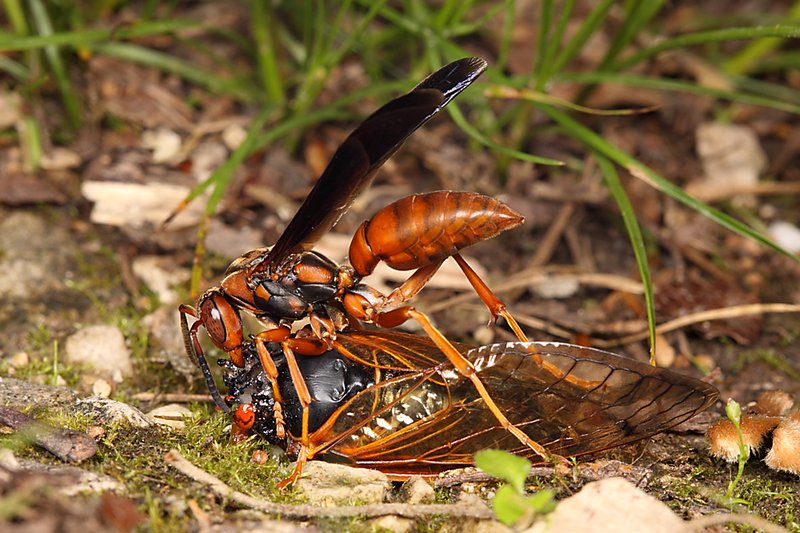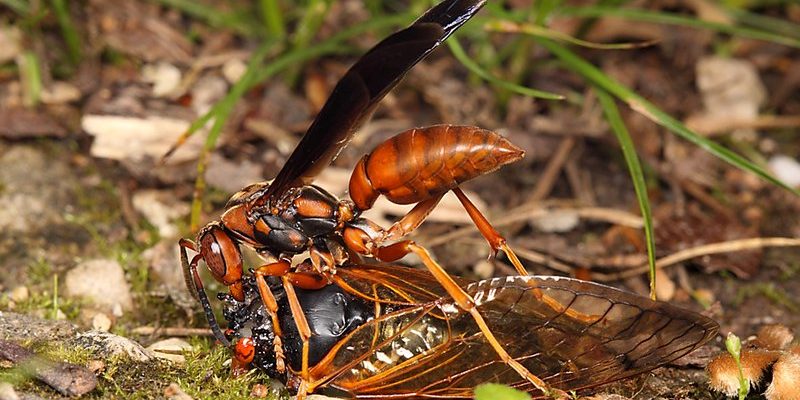
Beetles are a diverse group, comprising over 350,000 species worldwide. Each one has its own unique way of navigating the world, but they all share one common challenge: threats from predators. In this article, we’ll explore the various enemies that beetles must contend with, ranging from natural predators to human-induced dangers. Let’s dive in and uncover the hidden battles these little warriors face daily.
Natural Predators of Beetles
Beetles have an interesting place in the food web where they are both predators and prey. Various animals find beetles to be a delicious snack. Birds are perhaps the most well-known beetle hunters. Many birds, like blue jays and robins, actively forage for beetles in gardens and woodlands. During the spring and summer months, these birds become a serious threat to beetle populations as they feed their young.
Reptiles, such as lizards, also enjoy beetles. A lizard can spot a beetle from several feet away and quickly dart in for a tasty meal. Similarly, amphibians like frogs and toads are on the lookout for slow-moving beetles, particularly near water sources. These natural predators play a key role in keeping beetle communities in check.
Insects too are a major threat to beetles. For example, larger beetles like the ground beetle prey on smaller beetle species. Even some wasps lay their eggs inside beetles, leading to the unfortunate demise of the host beetle. This predatory relationship showcases the delicate balance of ecosystems, where every species has a role to play.
Parasites and Diseases
Another significant threat to beetles comes from parasites and diseases. Just like us, beetles can get sick or infested by unwanted guests. Some species of fungi, bacteria, and viruses specifically target beetles, sometimes leading to the collapse of entire populations.
For instance, a type of parasitic nematode can invade a beetle’s body, feeding off it and eventually killing it from the inside out. This is a gruesome fate and serves as a reminder of how intricate natural ecosystems can be. Additionally, certain fungi release spores that infect beetles, resulting in debilitating illness that affects their behavior and ability to reproduce.
Interestingly, some beetles have developed resistance to certain parasites and diseases over time. This is a classic example of evolution in action, but it doesn’t make them immune. They still have to deal with the constant threat posed by these microscopic adversaries.
Habitat Loss and Environmental Stresses
In recent years, habitat loss has emerged as a significant threat to beetle populations. Urbanization, deforestation, and agricultural expansion have all contributed to shrinking habitats where beetles once thrived. When forests are cut down or wetlands are drained, beetles lose their homes and access to food sources.
The use of pesticides is another serious concern. Chemicals designed to eliminate pests can inadvertently harm beetles. This is particularly true for beneficial beetles that help with pest control and pollination. Over time, the reduction of beetle populations can lead to imbalances in the ecosystem, affecting plants and other insects.
Climate change presents additional challenges. As temperatures rise and weather patterns shift, beetles might find it hard to adapt quickly enough. Some species may struggle to survive in warmer environments or find food that meets their needs. These changes can have long-lasting effects on beetle populations globally.
Competition with Other Insects
You might not think about it much, but competition is a fierce reality for beetles. Other insects often compete for the same resources that beetles depend on, including food, mating partners, and shelter. Ants, for example, are notorious for monopolizing food sources. They’ll chase away or even attack beetles that invade their territory.
In addition, some beetles face competition from close relatives. With so many species in the beetle family, even the smallest differences in diet or habitat can lead to competition for survival. This can be particularly challenging during peak seasons when resources like decaying plant matter are scarce.
The struggle for survival can sometimes spark fascinating adaptations. For instance, some beetles have learned to change their feeding habits or habitat preferences to avoid competition. This adaptability is vital, but it can also lead to increased stress for beetles fighting for their place in the ecosystem.
Impact of Climate Change
Climate change is one of the most pressing threats to beetles today. As temperatures rise, beetles are forced to adapt to new conditions. Some species can migrate to cooler areas, but not all beetles have this option. This can lead to population declines, especially for those with specialized habitat requirements.
Changes in weather patterns also affect the life cycles of beetles. For instance, warmer winters can lead to earlier mating seasons, which might not align with the availability of food resources. Imagine a beetle hatching in early spring when there are few flowers or decaying leaves to feed on. This misalignment can jeopardize the survival of the young beetles.
Moreover, more intense storms and erratic weather can directly destroy beetle habitats. Flooding, increased droughts, and other extreme weather events can wipe out entire populations. While nature can be resilient, the rapid pace of climate change poses significant challenges for beetles and many other species alike.
Human Impact and Conservation Efforts
Humans play a dual role when it comes to beetles. On one hand, we threaten their survival through habitat destruction, pollution, and climate change. On the other hand, we have the power to make positive changes that can help protect beetle populations.
Conservation efforts are essential to ensure that beetles continue to thrive in their natural habitats. This includes creating protected areas, promoting sustainable land use, and reducing pesticide use. Simple practices, like planting native plants in gardens, can also provide food and shelter for beetles.
Education plays a critical role as well. The more we learn about the importance of beetles in our ecosystems—like their roles in decomposition and pest control—the better we can advocate for their protection. By raising awareness, we can inspire others to contribute to conservation initiatives.
The world of beetles is both fascinating and complex. They may seem small and insignificant, but their role in our ecosystems is crucial. From natural predators and diseases to human impact and competition with other insects, beetles face many challenges in their daily lives.
Understanding these threats helps us appreciate the delicate balance of nature and the importance of every species within it. By making conscious choices and supporting conservation efforts, we can help protect beetles and ensure they continue to thrive. So, the next time you see a beetle in your garden, remember: there’s a whole lot more going on than meets the eye!

